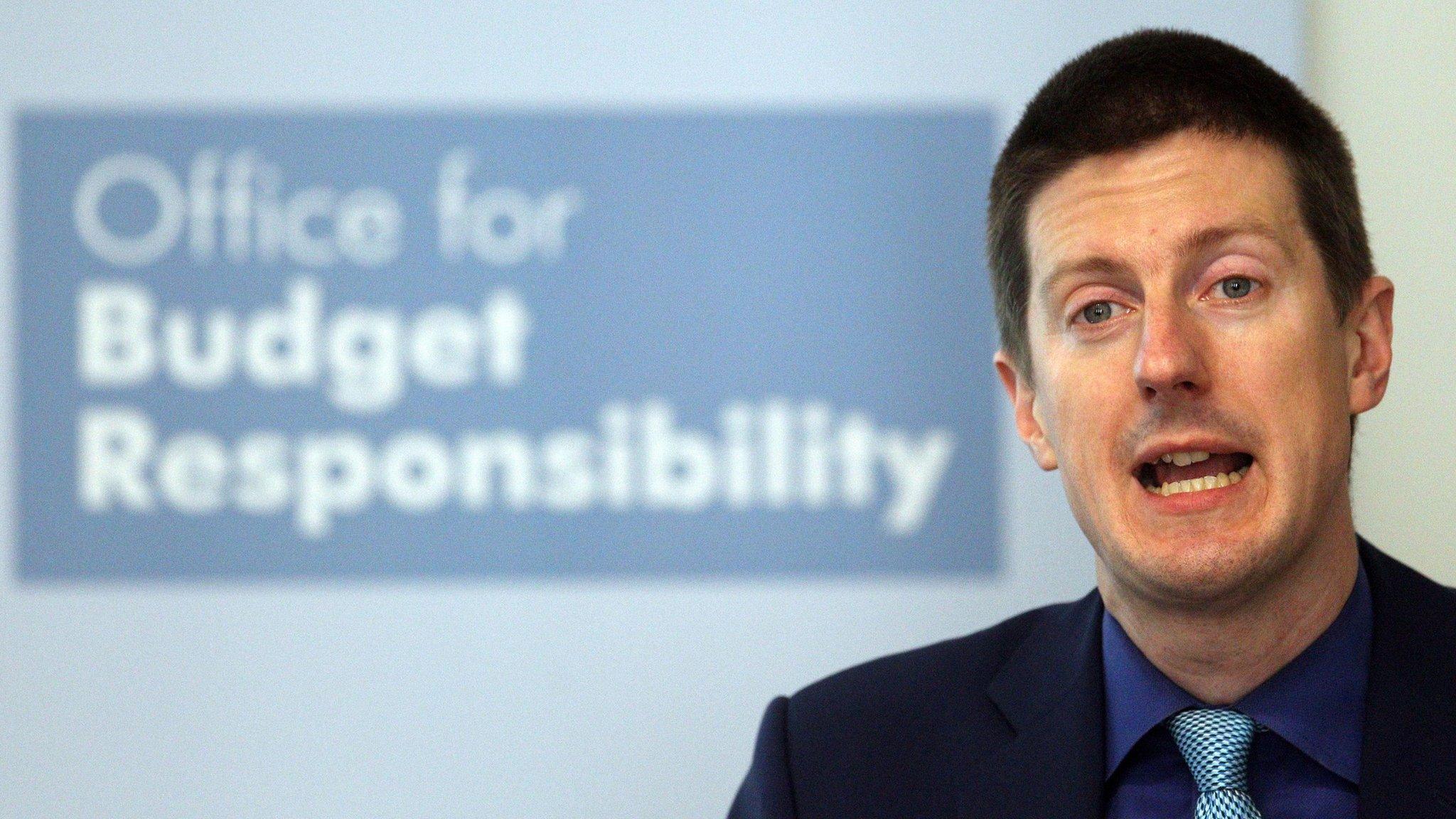Reality Check: Will there be a £32bn Brexit dividend?
- Published
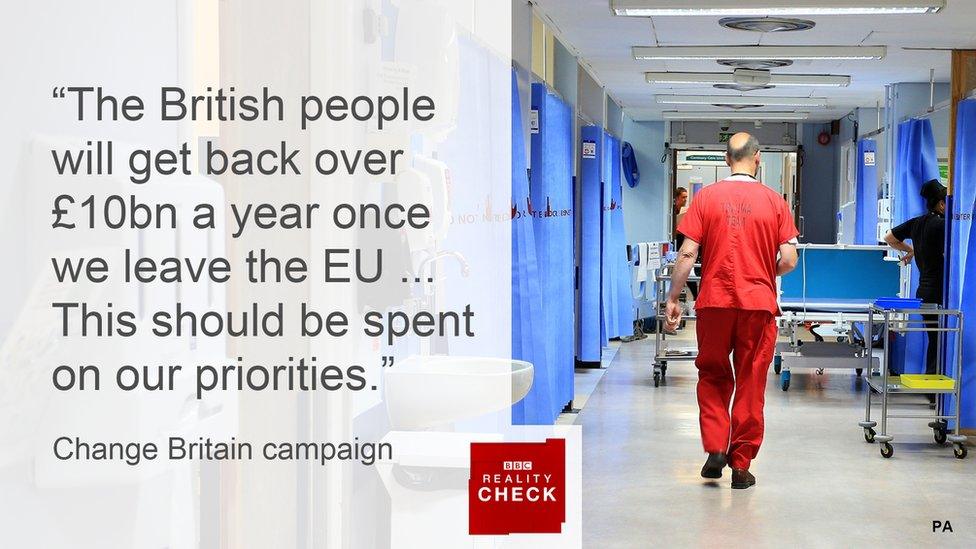
The claim: The Office for Budget Responsibility forecasts include an extra £10bn each year from 2019-20 for public spending as a result of leaving the EU - this could be spent on the NHS.
Reality Check verdict: If the UK manages to stop completely its contributions to the EU budget in 2019-20 then there may be some extra money to spend on other things - but in that same year the OBR is predicting that the government will have to borrow an extra £14.7bn as a result of the Brexit vote.
A campaign group called Change Britain, led by Leave supporters, has claimed that: "Buried deep in the Office for Budget Responsibility Economic and Fiscal Outlook yesterday was the £32bn 'Brexit dividend' that the UK will receive when it leaves the EU."
What they are talking about is the amount of money saved if the UK stops making contributions to the EU budget.
The £32bn is what you get if you add up the figures for the net contribution to the EU budget in 2019-20, 2020-21 and 2021-22, contained in Chart 2.26, external of the OBR report accompanying the Autumn Statement.
Change Britain would perhaps have been better off using a slightly less "buried" figure, which is to be found in table 4.27.

That table gives the amount of domestic spending that the OBR assumes could be done if the government abruptly stopped making any contributions to the EU budget. Over three years, those figures add up to £40bn.
There are several things to say about this figure before describing it as a Brexit dividend.
The first is that the reason it is of relatively little interest to the OBR is that the independent forecasting group assumes that if that money stops being sent to Brussels it will be spent elsewhere by the government, which means that it makes almost no difference when forecasting future borrowing.
But clearly, for the population as a whole, the idea of having an extra £13bn spent on the NHS in 2019-20 is of much greater interest. Is that possible?
Not all of that money can be spent on the NHS because the government has promised that groups such as universities and scientific researchers who currently receive money from the EU will continue to do so, at least until we leave the EU, with continuing funding at least until projects already under way are finished.
Also, some of the money that the UK contributes to the EU budget that is spent on, for example, supporting poorer regions of Europe, counts as part of the government's spending on international development.
The government is committed to spending 0.7% of national income each year on international development - if we didn't do so via the EU budget we'd have to spend it elsewhere.
'Divorce settlement'
But what makes this figure the most difficult is that it assumes that the UK will leave the EU at the end of March 2019, at which point all contributions to the EU budget will immediately stop.
We've looked at the chances of this happening before and it turns out that there are two areas in which there may have to be further spending.
The first is that there are things that the UK is committed to funding that will not be completed when the UK leaves. These include things like scientific projects and infrastructure projects - there is likely to have to be a sort of divorce settlement agreed to fund them. There are also likely to have to be continuing payments to fund a share of the pensions for EU civil servants.
The other area where there may be payments is if the UK wants to continue to participate in any parts of the EU. Some countries contribute to the EU budget in order to gain preferential access to the single market. We (and the OBR) don't know if the government is prepared to do that.
And there are other programmes such as EU funding for research or the European Investment Bank that the UK might want to continue its involvement with, which would also involve making financial contributions.
Finally, thinking of £13bn in 2019-20 as a "Brexit dividend" is a bit difficult when the OBR is predicting that in that year the government will have to borrow an extra £14.7bn just as a result of the vote to leave the EU.
If the government were committed to using any money saved from the EU budget to reduce borrowing then you could say it would cut the amount of extra borrowing needed as a result of Brexit - but actually Change Britain is calling for it to be spent on "our priorities - the most important of which is the NHS".



- Published24 November 2016

- Published24 November 2016
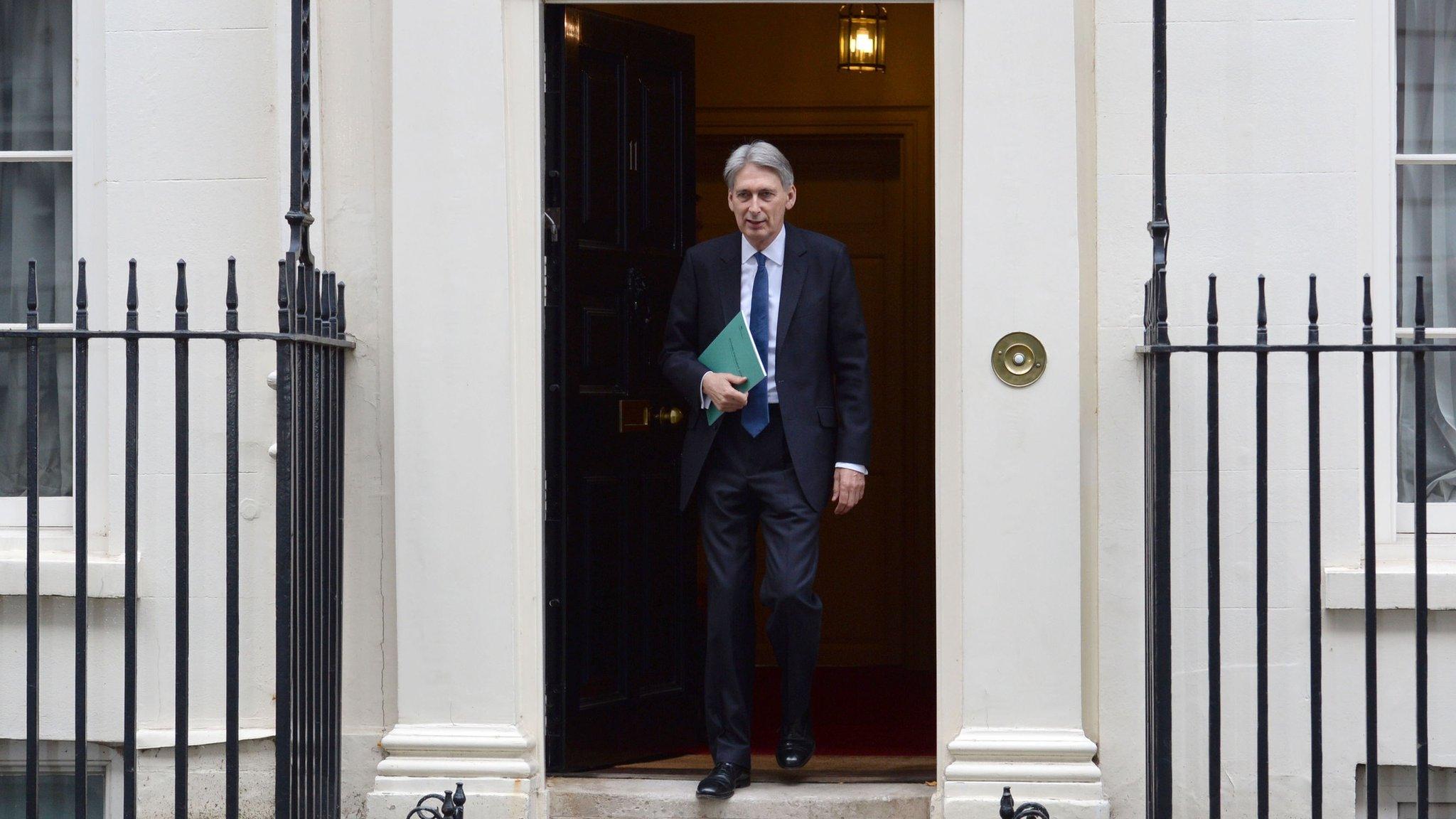
- Published23 November 2016
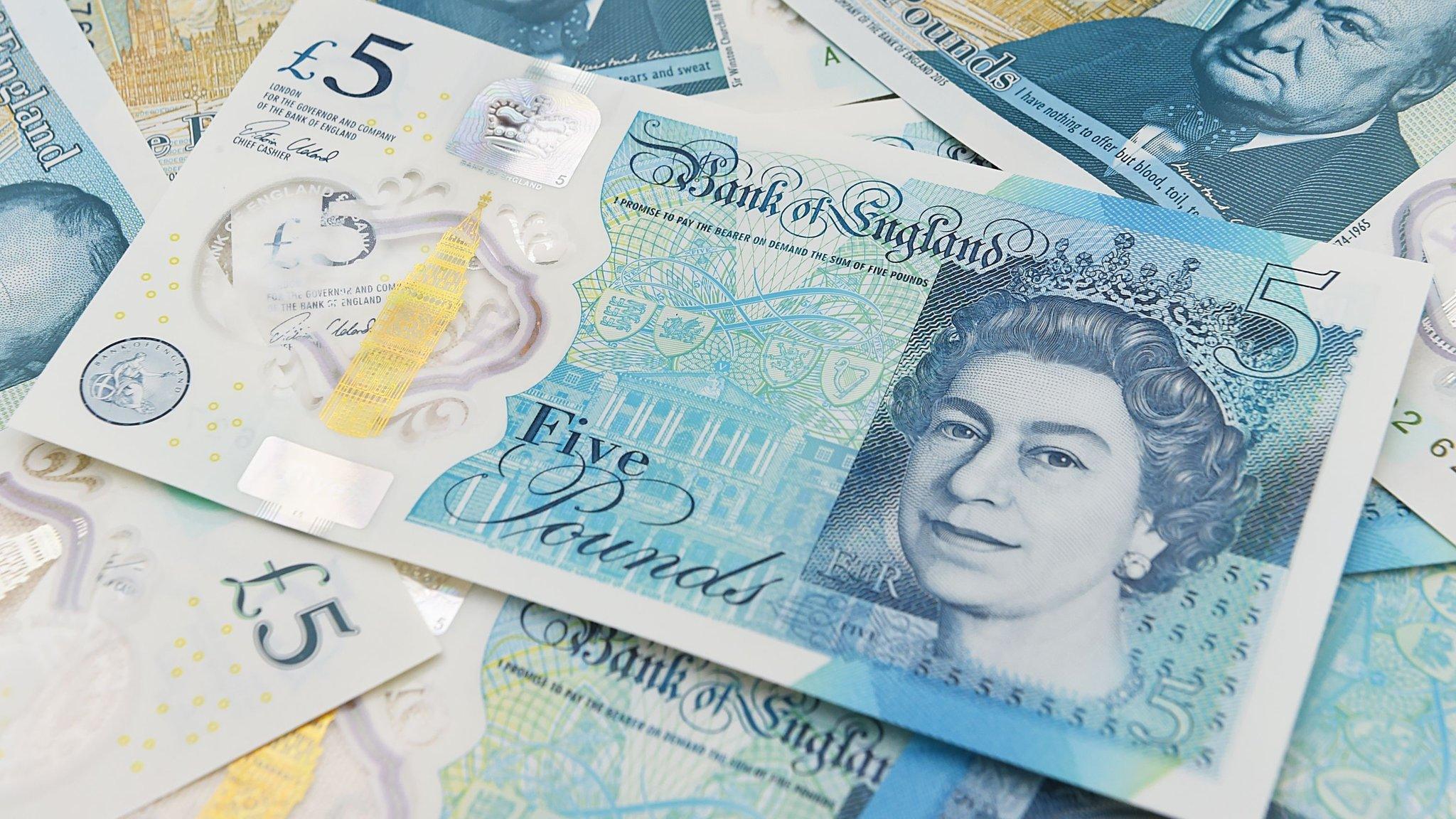
- Published18 November 2016
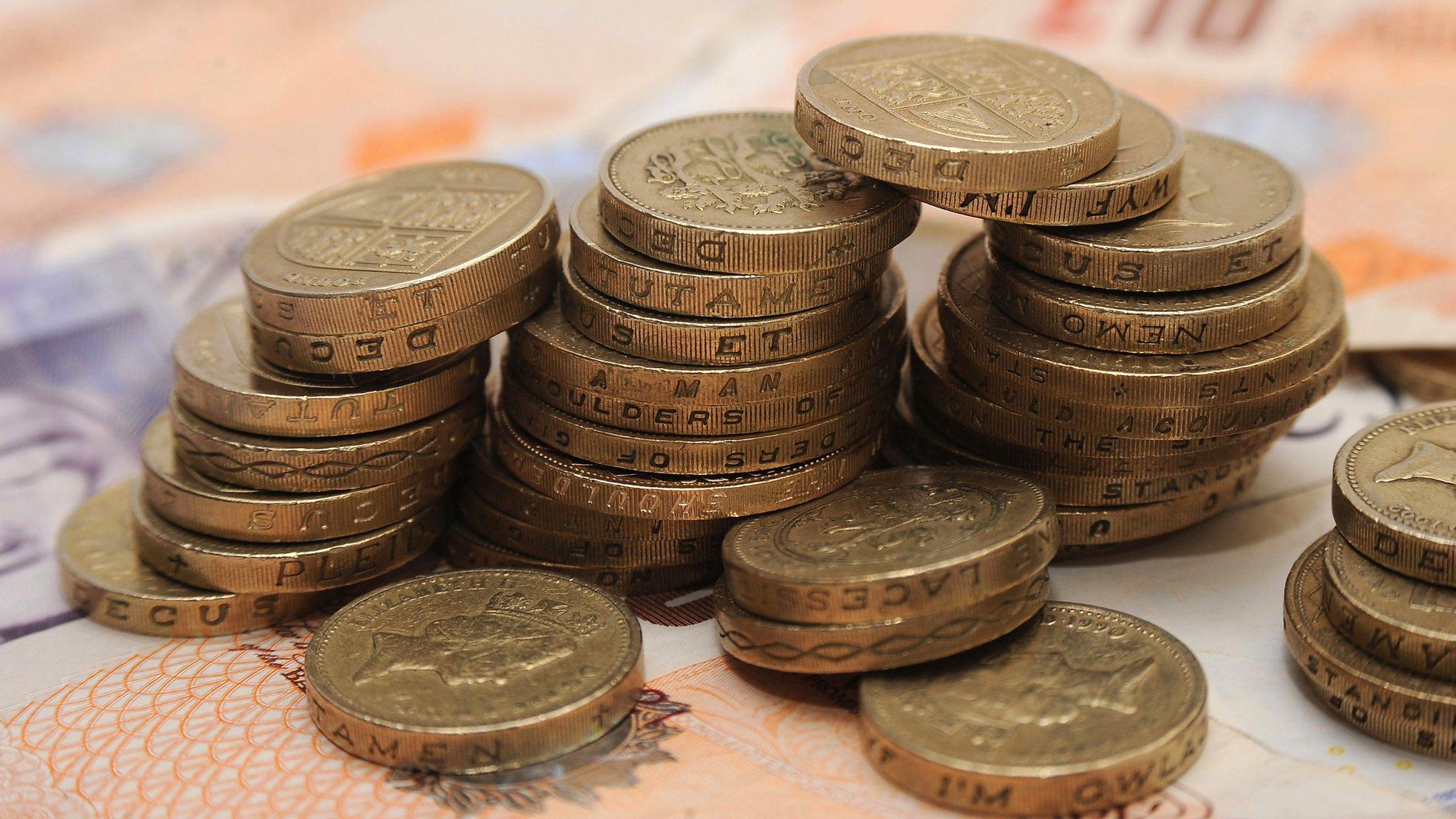
- Published17 November 2016
